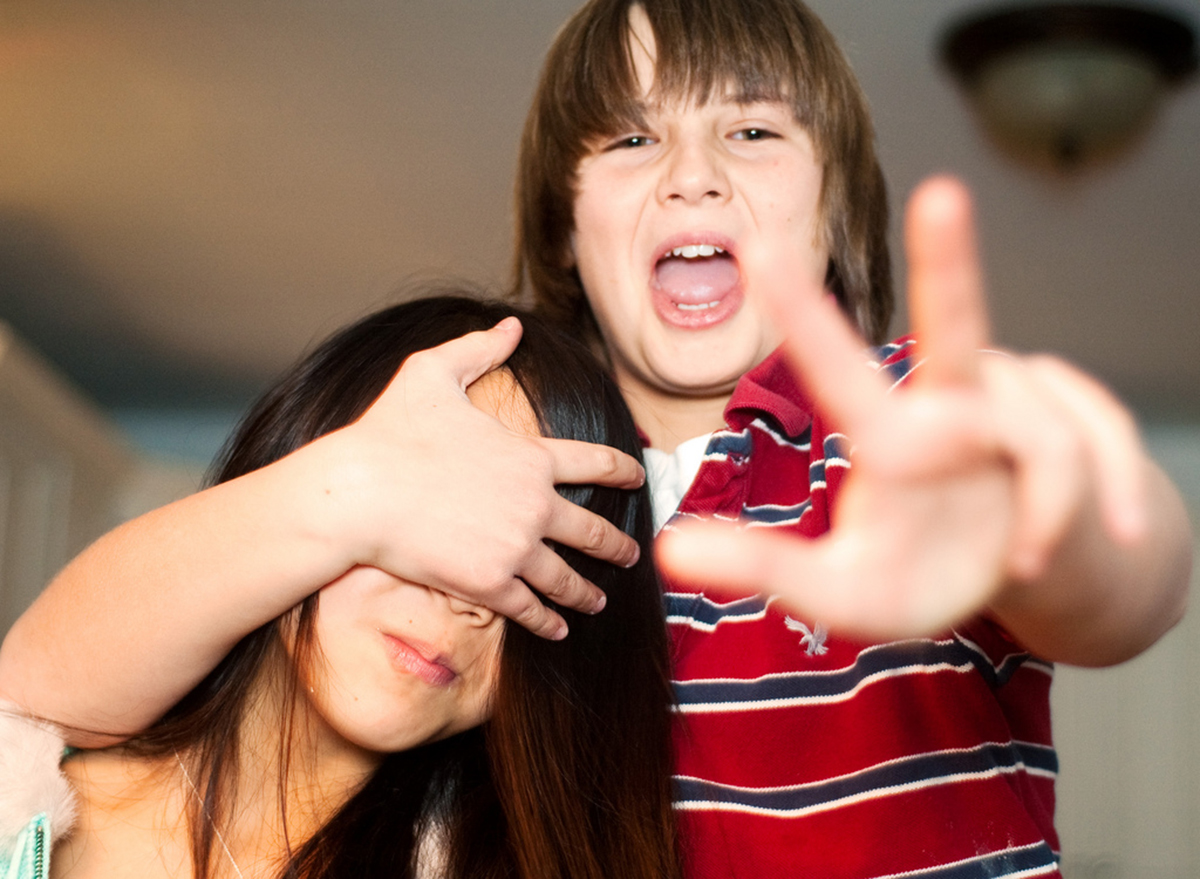Table of Contents
What causes sibling rivalry? Traditionally, this ubiquitous phenomenon was explained by a very logical-sounding need to compete for parental love, attention, and resources. Current research shows that sibling rivalry may well be a whole lot more complicated. Though there may indeed be some truth to the pervasive idea that kids compete to win a prime spot in their parents' hearts, research shows that siblings themselves don't agree. Though siblings argue around five times a day on average, they believe they are competing with each other, not for parental attention.

A Japanese study confirmed this idea when it found that girls suddenly became more competitive in math assignments when they were aware that their sisters were also participating. That pack-animal instinct may be a whole lot stronger than we believe!
The Birth Order Myth
Another myth that refuses to die is that birth order influences a child's personality along predictable lines. The firstborn is believed to be a more controlling and protective high-achiever, while middle kids are meant to be peace makers and people-pleasers. The youngest, the old wives' tales say, are supposed to be self-centered, fun-loving attention seekers. Ouch! As a lastborn, that stings and I can say it couldn't be further from the truth!
One theory holds that individualization, or niche-forming, is a means to reduce sibling rivalry. By developing strengths that differ from our brothers' and sisters' strengths, we can offer optimal contributions to the family unit while avoiding being placed in direct competition with our siblings.
Parents of constantly-arguing siblings who didn't deflect rivalry through niche-forming may be worried sick that this means their kids won't grow up to be close during adulthood. Thankfully, science dispels some of those worries. A large America study found that a full two thirds of adults with siblings consider their siblings to be their best friends, and a third responded that they would call a sibling first in case of an emergency.
READ Is There a Right Way to Parent?
Still, there is plenty of reason to actively foster positive sibling relationships during childhood. Those kids who have a great bond with their brothers and sisters while they are growing up go on to be more altruistic, empathetic, compassionate and generous as adults than those who don't have good relationships with their siblings and those who don't have siblings. Senior citizens with living siblings benefit too — research shows that they have a higher sense of morale than the rest of us, demonstrating that the benefits of having siblings, and having good sibling bonds, last a lifetime.
The impact of siblings on mental and physical health, and on social development and personality, is very much an emerging field. More research will no doubt appear over the coming years. Meanwhile, those of us who have siblings all know that they play an incredibly unique important part in our lives, a part that can't be replaced by parents, cousins, or friends.
- Photo courtesy of MissMessie: www.flickr.com/photos/97335141@N00/4181798598/
- Photo courtesy of carbonnyc: www.flickr.com/photos/carbonnyc/3125512634/
- Photo courtesy of carbonnyc: www.flickr.com/photos/carbonnyc/3125512634/
- www.ajpmonline.org/article/S0749-3797(14)00236-0/abstract
- news.byu.edu/news/sisters-give-siblings-better-mental-health-study-shows
- nymag.com/scienceofus/2015/09/venus-serena-and-the-science-of-sibling-bonds.html
- www.sciencedirect.com/science/article/pii/S0191886915001609
- sf.oxfordjournals.org/content/71/1/85.short
- www.ncbi.nlm.nih.gov/pmc/articles/PMC3956653/#R43


Your thoughts on this